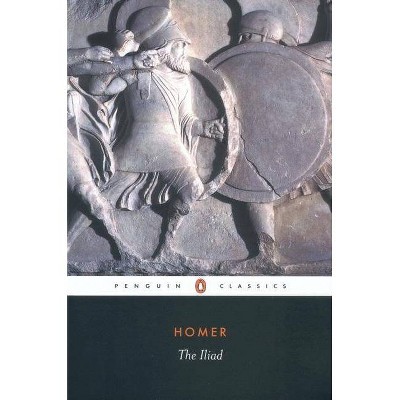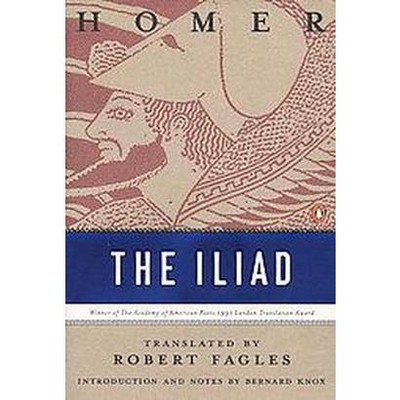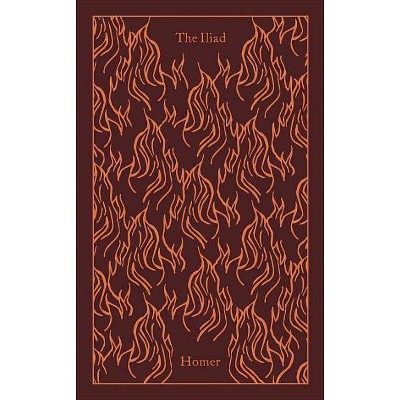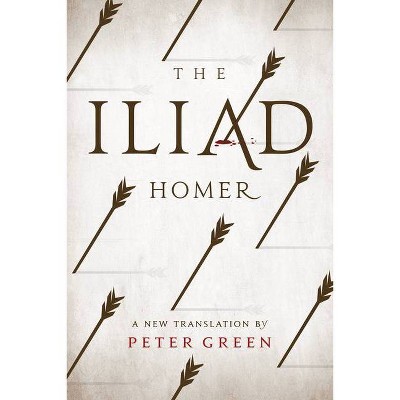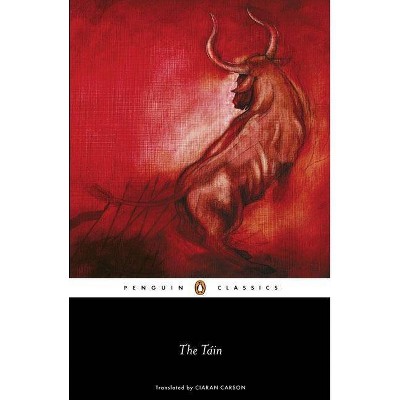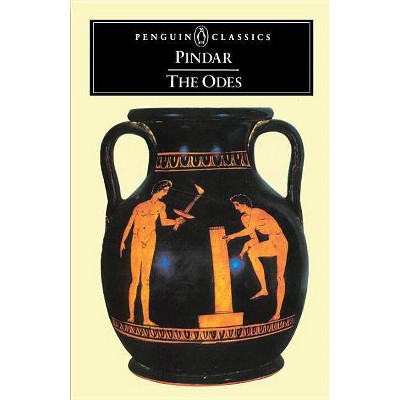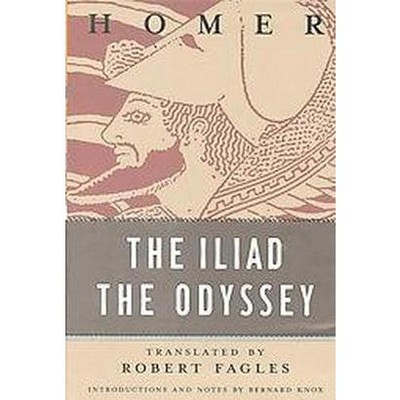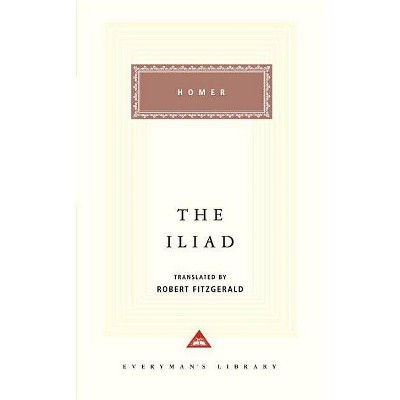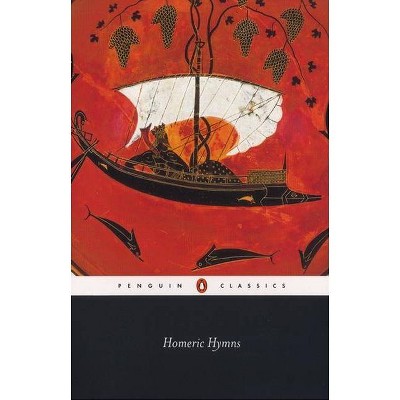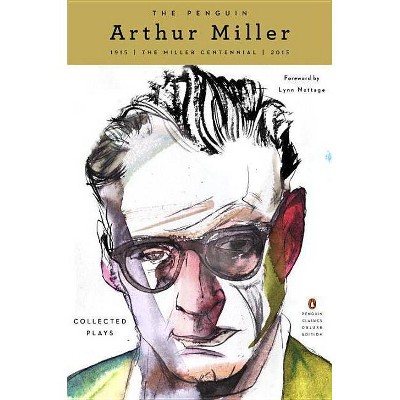The Iliad - (Penguin Classics) (Paperback)
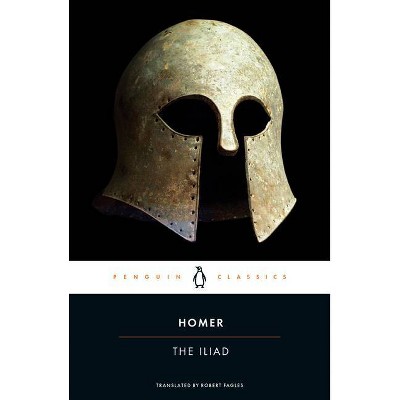
Similar Products
Products of same category from the store
AllProduct info
<p/><br></br><p><b> About the Book </b></p></br></br>In this widely acclaimed verse translation of Homer's great epic, Robert Fagles combines the skills of poet and scholar. He brings the energy of contemporary language to this enduring heroic work, but maintains the drive and metric music of Homer's poetry and evokes the impact and nuance of Homer's mesmerizing repeated phrases.<p/><br></br><p><b> Book Synopsis </b></p></br></br><b>The great war epic of Western literature, in a stunning translation by acclaimed classicist Robert Fagles</b> <p/><b>A Penguin Classic</b> <p/>Dating to the ninth century B.C., Homer's timeless poem still vividly conveys the horror and heroism of men and gods wrestling with towering emotions and battling amidst devastation and destruction, as it moves inexorably to the wrenching, tragic conclusion of the Trojan War. Renowned classicist Bernard Knox observes in his superb introduction that although the violence of the <i>Iliad </i>is grim and relentless, it coexists with both images of civilized life and a poignant yearning for peace. <p/>Combining the skills of a poet and scholar, Robert Fagles brings the energy of contemporary language to this enduring heroic epic. He maintains the drive and metric music of Homer's poetry, and evokes the impact and nuance of the <i>Iliad</i>'s mesmerizing repeated phrases in what Peter Levi calls "an astonishing performance." <p/>For more than seventy years, Penguin has been the leading publisher of classic literature in the English-speaking world. With more than 1,700 titles, Penguin Classics represents a global bookshelf of the best works throughout history and across genres and disciplines. Readers trust the series to provide authoritative texts enhanced by introductions and notes by distinguished scholars and contemporary authors, as well as up-to-date translations by award-winning translators.<p/><br></br><p><b> Review Quotes </b></p></br></br><br>"Fitzgerald has solved virtually every problem that has plagued translators of Homer. The narrative runs, the dialogue speaks, the military action is clear, and the repetitive epithets become useful text rather than exotic relics." -"Atlantic Monthly " <BR>"Fitzgerald's swift rhythms, bright images, and superb English make Homer live as never before...This is for every reader in our time and possibly for all time."-"Library Journal " <BR>"[Fitzgerald's "Odyssey" and "Iliad"] open up once more the unique greatness of Homer's art at the level above the formula; yet at the same time they do not neglect the brilliant texture of Homeric verse at the level of the line and the phrase." -"The Yale Review<BR>"<BR>"What an age can read in Homer, what its translators can manage to say in his presence, is one gauge of its morale, one index to its system of exultations and reticences. The supple, the iridescent, the ironic, these modes are among our strengths, and among Mr. Fitzgerald's." -"National Review" <BR>With an Introduction by Gregory Nagy<br><p/><br></br><p><b> About the Author </b></p></br></br><b>Homer</b> was probably born around 725 B.C. on the Coast of Asia Minor, now the coast of Turkey, but then really a part of Greece. Homer was the first Greek writer whose work survives. <p/>He was one of a long line of bards, or poets, who worked in the oral tradition. Homer and other bards of the time could recite, or chant, long epic poems. Both works attributed to Homer--the <i>Iliad</i> and the <i>Odyssey--</i>are over ten thousand lines long in the original. Homer must have had an amazing memory but was helped by the formulaic poetry style of the time. In the <i>Iliad</i>, Homer sang of death and glory, of a few days in the struggle between the Greeks and the Trojans. Mortal men played out their fate under the gaze of the gods. The <i>Odyssey</i> is the original collection of tall traveller's tales. Odysseus, on his way home from the Trojan War, encounters all kinds of marvels from one-eyed giants to witches and beautiful temptresses. His adventures are many and memorable before he gets back to Ithaca and his faithful wife Penelope. <p/>We can never be certain that both these stories belonged to Homer. In fact, "Homer" may not be a real name but a kind of nickname, meaning perhaps "the hostage" or "the blind one." Whatever the truth of their origin, the two stories, developed around three thousand years ago, may well still be read in three thousand years' time. <p/><b>Robert Fagles </b>(1933-2008) was Arthur W. Marks '19 Professor of Comparative Literature, Emeritus, at Princeton University. He was the recipient of the 1997 PEN/Ralph Manheim Medal for Translation and a 1996 Award in Literature from the American Academy of Arts and Letters. His translations include Sophocles's <i>Three Theban Plays</i>, Aeschylus's <i>Oresteia</i> (nominated for a National Book Award), Homer's <i>Iliad</i> (winner of the 1991 Harold Morton Landon Translation Award by The Academy of American Poets), Homer's <i>Odyssey</i>, and Virgil's <i>Aeneid</i>. <p/><b>Bernard Knox</b> (1914-2010) was Director Emeritus of Harvard's Center for Hellenic Studies in Washington, D.C. He taught at Yale University for many years. Among his numerous honors are awards from the National Institute of Arts and Letters and the National Endowment for the Humanities. His works include <i>The Heroic Temper: Studies in Sophoclean Tragedy, Oedipus at Thebes: Sophocles' Tragic Hero and His Time </i>and <i>Essays Ancient and Modern </i>(awarded the 1989 PEN/Spielvogel-Diamonstein Award).
Price History
Price Archive shows prices from various stores, lets you see history and find the cheapest. There is no actual sale on the website. For all support, inquiry and suggestion messages communication@pricearchive.us
